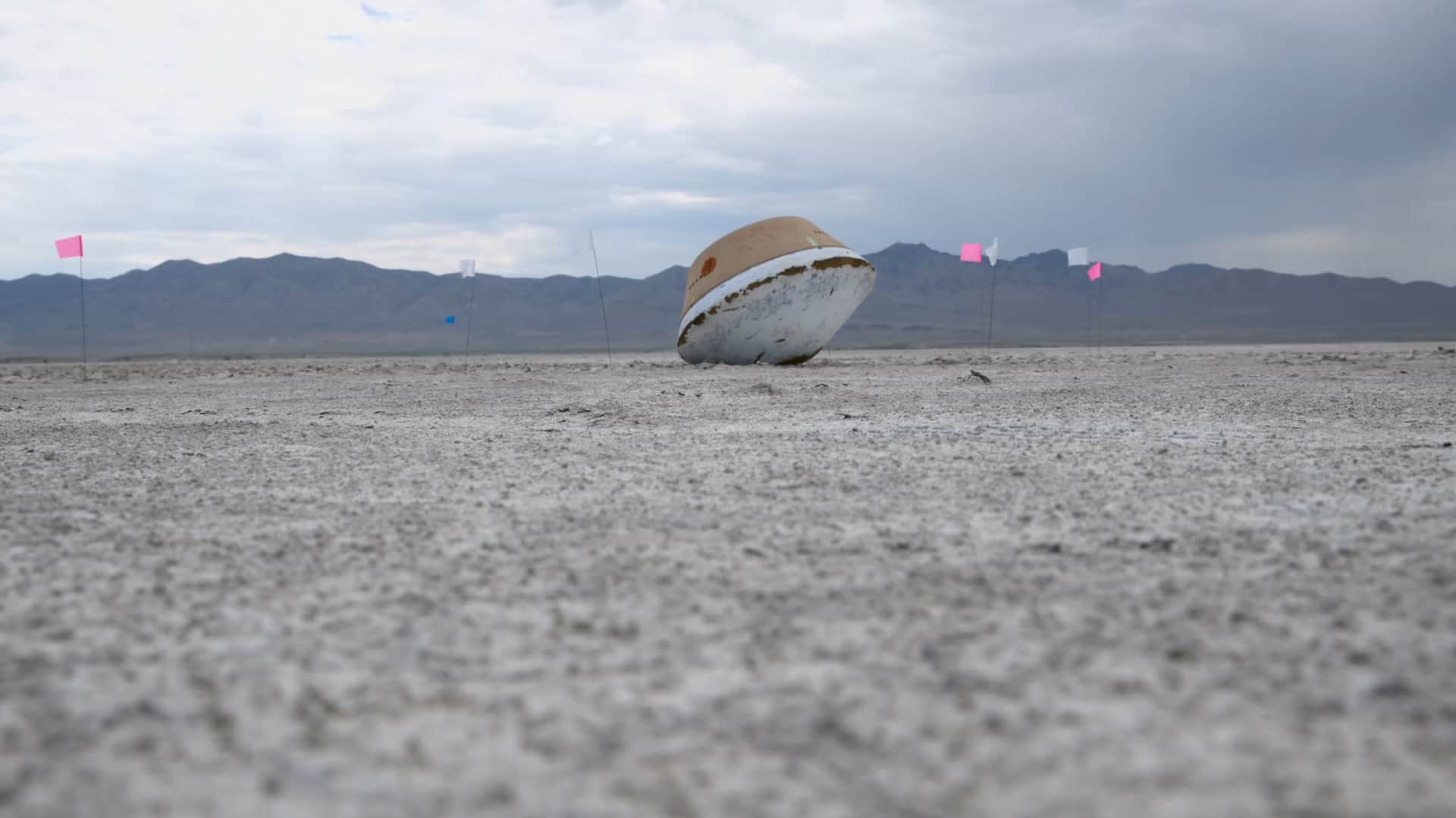
NASA scientists to analyze Bennu asteroid samples: What to expect
What's the story
After seven years and a journey spanning 6.21 billion kilometers, NASA's OSIRIS-REx mission returned to Earth successfully on Sunday, delivering a capsule containing samples collected from asteroid Bennu.
The mission is estimated to have collected about 250g of asteroid specimen, which could provide valuable insights into the early solar system and the origins of life on Earth.
After landing, the capsule was retrieved from the Utah desert and was taken to a clean room to reduce contamination during further processing.
Details
What's special about asteroid Bennu
Asteroid Bennu is believed to be a remnant of the early solar system, around 4.5 billion years old.
One of the ways Earth is said to have received essential ingredients for life is through asteroid bombardment during the early days of the evolution of our solar system.
The pristine asteroid material collected by NASA's OSIRIS-REx can help scientists understand the likelihood of that happening, along with studying the processes that shaped the solar system.
Analysis
Sample analysis to happen at NASA's Johnson Space Flight Center
OSIRIS-REx, short for Origins Spectral Interpretation Resource Identification Security -Regolith Explorer, was launched in September 2016.
The $1 billion mission reached asteroid Bennu in December 2018. After a two-year survey of the asteroid, the probe collected asteroid samples and then started on its return trip home, which ended on Sunday.
Post landing, OSIRIS-REx's sample return capsule was disassembled in a clean room. The sample canister will be taken to NASA's Johnson Space Flight Center for further analysis.
Insights
Returned asteroid material to be analyzed by researchers worldwide
At NASA's Johnson Space Flight Center, scientists will unbox OSIRIS-REx's sample return capsule and take inventory of the obtained samples, among other analyses.
The samples will be sent to other researchers worldwide for studies. The Canadian Space Agency will receive 4%, and the Japanese Space Agency will receive 0.5% of the returned asteroid samples.
Some materials will be stored at a secure facility in New Mexico. Moreover, NASA plans to reveal the results of its initial analysis on October 11.
Previous attempts
This is NASA's first asteroid sample return mission
OSIRIS-REx is NASA's first mission to return asteroid samples to Earth.
Before this, two missions—both by the Japan Aerospace Exploration Agency (JAXA)—have returned asteroid specimens to Earth.
In 2010, the Hayabusa mission brought back under a milligram of samples from asteroid Itokawa. A decade later, Hayabusa 2 returned 5.4g of specimen from asteroid Ryugu.